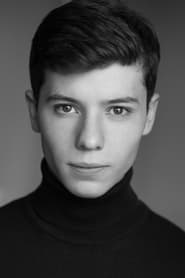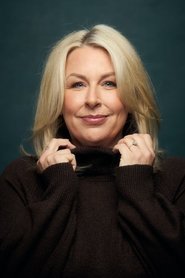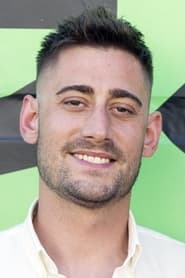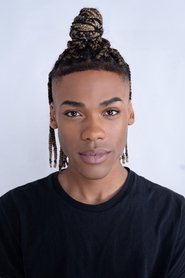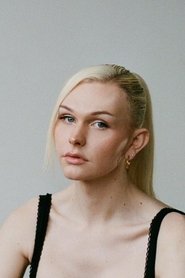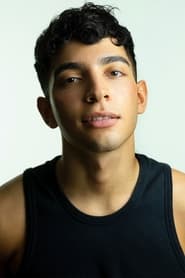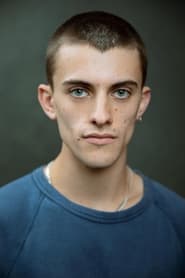
Ask Your Own Question
What is the plot?
The series opens in the year 2000 in Hucknall, a small ex-mining town, where 14-year-old Byron lives with his family. Byron is visibly different from other boys, often walking "like a fairy," which draws scorn, abuse, and violence from peers and bewildered contempt and hostility from his father, a local security guard and town tough guy. Byron is victimized as a "poof," but it becomes clear that his struggle is more complex than just being gay. His only source of unconditional love and acceptance is his grandmother, Mammar, who supports him without judgment. Byron finds some escape in music and dreams of leaving his small town for a more exciting life.
Byron's desire to escape leads him to Nottingham, where he sneaks into queer nightclubs and meets a group called the "Fallen Divas," a gang of gays and trans women, including sex workers, who offer him support, affirmation, and some protection. Among them is Lady Die, a professional dancer and the East Midlands' premier podium-dancer-cum-hellraiser, who takes Byron under her wing and adopts him into her chaotic family. Byron begins to explore his identity more openly, but this new world also exposes him to hedonism, drugs, casual sex, and real physical and moral dangers. Byron starts engaging in sex work, accepting money from older men, which adds to the complexity and risk of his situation.
Byron's transition begins in earnest as he starts living as a woman. He applies for university at the University of Birmingham but faces rejection due to the admission board's transphobia. Meanwhile, Byron's relationship with Lisa, a close figure who initially scolds Byron for transitioning, remains tense. Byron visits Lady Die, who remains distant despite their bond. Byron also searches for Sasha, a missing friend, and eventually reunites with her after finding an advertisement in a newspaper and calling the number with Lady Die. Byron encounters Max at a bingo hall; Max offers to reconnect, but Byron hesitates to unblock his number.
Byron receives news from Alison that the University of Brighton has invited her to an interview and removes the tag from her application. To celebrate, Byron goes clubbing with the Divas. Upon returning home, she finds Joe, a family member, coughing up blood and takes him to the hospital, where doctors inform Byron and Lisa that Joe is dying from lung cancer. Byron unblocks Max's number and spends the night with him, discovering that Max is still involved in sex work and lives in a dilapidated apartment. Byron chooses to stay by Joe's bedside instead of attending the university interview, talking with Lisa while Joe passes away.
After Joe's death, Byron returns to Max's place but receives a voicemail from Alison informing her that the University of Brighton has postponed the interview due to the death of Byron's grandmother. Byron quickly leaves and attends the rescheduled interview, making a good impression and ultimately being accepted. Byron offers Sasha and Lady Die the chance to move to Brighton with her, but both refuse. Lisa drives Byron to the bus station and tells her she will try to understand her transition. Byron realizes that Lisa informed Alison about Joe's death, which led to the second interview opportunity. At the university, Byron begins using the name Paris, marking a significant step in her transition and new life.
What is the ending?
At the end of What It Feels Like For a Girl Season 1, Byron, having fully embraced her identity as Paris, secures a place at the University of Brighton. She says goodbye to her friends Sasha and Die, who choose not to move with her, and begins her new life as Paris, symbolizing her transition and new beginning.
The final episodes unfold with Byron living openly as a woman and facing challenges such as transphobia during a University of Birmingham interview, which she fails. Lisa, her mother, remains conflicted but begins to try to understand her. Byron reconnects with her friends Sasha and Die after tracking Sasha down through a newspaper ad. Byron also deals with the terminal illness of her grandmother Joe, who dies in the hospital with Byron and Lisa by her side.
Byron unblocks Max, a former partner still involved in sex work, and spends a night with him, but their lives have diverged. Alison, a university contact, informs Byron that the University of Brighton has invited her for an interview, which is postponed due to Joe's death but later rescheduled. Byron impresses at the Brighton interview and is accepted.
In the closing scenes, Byron offers Sasha and Die the chance to join her in Brighton, but they decline. Lisa drives Byron to the bus station, expressing a tentative willingness to understand her. Byron realizes Lisa informed Alison about Joe's death, which helped arrange the second interview. The series ends with Byron starting university under her chosen name, Paris, marking her full step into her true self and future.
Narrated scene by scene:
The ending begins with Byron living as a woman, now going by Paris. She attends an interview at the University of Birmingham but faces rejection due to the admission board's transphobia. This scene highlights the systemic barriers Paris encounters despite her determination.
Lisa, Byron's mother, continues to scold and struggle with Byron's transition, showing the ongoing familial tension. Byron visits Die, who has become a professional dancer but remains emotionally distant, underscoring the complexity of their friendship.
Byron is unaware of Sasha's whereabouts until she finds an advertisement in a newspaper. She and Die call the number together, leading to a reunion with Sasha. This moment reconnects the trio, emphasizing the importance of chosen family.
Alison, a university contact, informs Byron that the University of Brighton has invited her for an interview and removes a tag from her application, symbolizing progress and acceptance.
Byron celebrates with the Divas at a club, a scene filled with energy and camaraderie, before returning home to find her grandmother Joe coughing up blood. Byron rushes Joe to the hospital, where doctors confirm Joe is dying from lung cancer. Byron and Lisa share this painful moment, showing a rare moment of connection between them.
Byron unblocks Max's number and spends the night with him. Max is still involved in sex work and lives in poor conditions, illustrating the divergent paths their lives have taken.
When the University of Brighton interview is postponed due to Joe's death, Byron hastily leaves the hospital to attend the rescheduled interview. She makes a strong impression and is accepted, marking a turning point in her life.
Byron offers Sasha and Die the chance to move to Brighton with her, but both decline, choosing to stay behind. Lisa drives Byron to the bus station, telling her she will try to understand her. Byron realizes Lisa informed Alison about Joe's death, which helped secure the second interview.
The final scene shows Byron starting university under the name Paris, symbolizing her full embrace of her identity and the beginning of a new chapter.
In terms of character fates:
- Byron/Paris moves forward with her life as a woman, accepted into university, and begins living authentically.
- Lisa, Byron's mother, remains conflicted but shows signs of tentative acceptance.
- Joe, Byron's grandmother, dies from lung cancer, a significant emotional event.
- Sasha and Die remain in Nottingham, choosing not to follow Paris to Brighton.
- Max continues his life in sex work, living in difficult circumstances, separate from Paris's new path.
This ending encapsulates the themes of identity, resilience, chosen family, and the painful but hopeful transitions in life.
Is there a post-credit scene?
The TV show "What It Feels Like For a Girl," Series 1 (2025), does not have any publicly documented post-credit or mid-credit scenes. Available sources, including detailed episode summaries and reviews, do not mention or describe any post-credit content for this series.
The search results that discuss post-credit scenes pertain to other titles, such as the 2025 movie "I Know What You Did Last Summer," which has a notable mid-credit scene, but this is unrelated to the TV series in question.
Therefore, based on current information, "What It Feels Like For a Girl" Season 1 does not include a post-credit scene.
What challenges does Byron face during the University of Birmingham interview in Season 1?
Byron faces transphobia from the University of Birmingham admission board during the interview, which leads to a failed attempt to gain admission early in the series.
How does Byron's relationship with the Fallen Divas evolve throughout Season 1?
Byron is adopted into the Fallen Divas gang, including Lady Die, Sticky Nikki, Dirty Damian, and Sasha. While Byron finds support and affirmation, tensions arise, especially with Sasha, leading to a complex dynamic of rivalry and friendship.
What significant events lead Byron to transition and start living as a woman in the series?
Byron's journey to living as a woman includes escaping a small town, facing abuse and rejection, engaging with the queer nightlife and the Fallen Divas, and confronting personal and external challenges such as family conflict and societal transphobia.
What role does Byron's family, especially Lisa and Joe, play in the plot of Season 1?
Lisa initially scolds Byron for transitioning but later shows signs of trying to understand her. Joe, Byron's family member, suffers from lung cancer and dies during the series, which deeply affects Byron and influences her decisions, including missing an important university interview.
How does Byron's relationship with Max develop in Season 1?
Byron encounters Max at a bingo hall and initially refuses to unblock his number. Later, she spends a night with him, discovering he is still involved in sex work and living in poor conditions, which adds complexity to their relationship.
Is this family friendly?
The TV show What It Feels Like For a Girl (Season 1, 2025) is not family friendly and contains content that may be upsetting or inappropriate for children and sensitive viewers. It is a raw, coming-of-age drama centered on a transgender teenager, Byron, navigating complex issues including self-discovery, family conflict, and involvement in Nottingham's queer underworld in the early 2000s.
Potentially objectionable or upsetting aspects include:
- Themes of drug and alcohol use within a chaotic, anarchic social environment.
- Exploration of sex work, as Byron becomes a rent boy, which involves mature and potentially distressing situations.
- Family conflict and emotional distress, including threats of police involvement and strained relationships.
- Depictions of self-destruction and psychological struggles related to identity and acceptance.
- The show contains raw and gritty portrayals of queer and trans experiences, which may include explicit language and adult situations.
These elements make the series suitable for mature audiences rather than children or those sensitive to intense emotional and adult themes.




